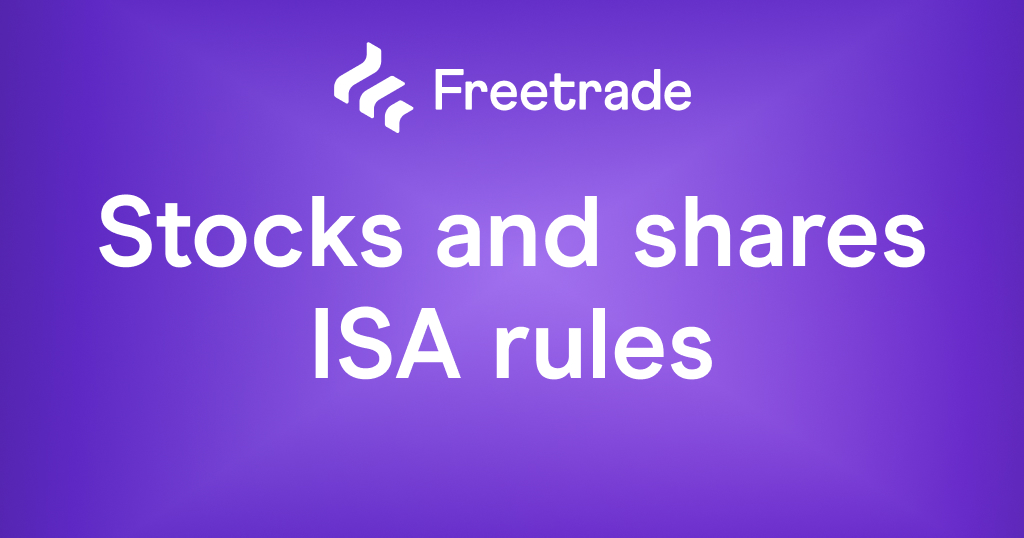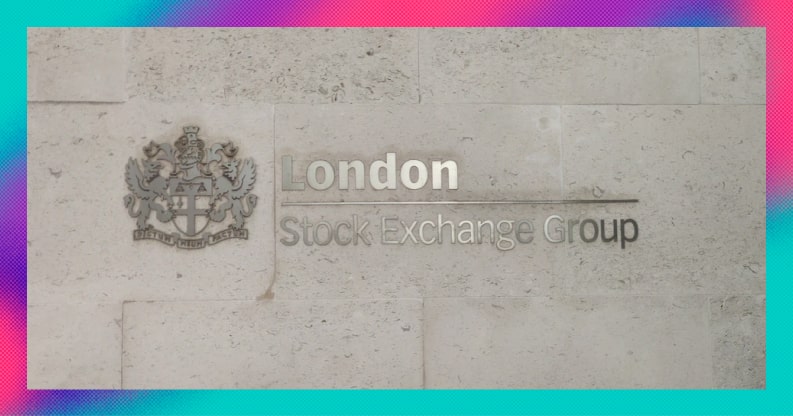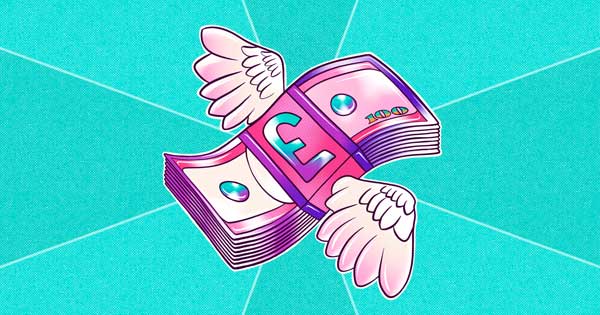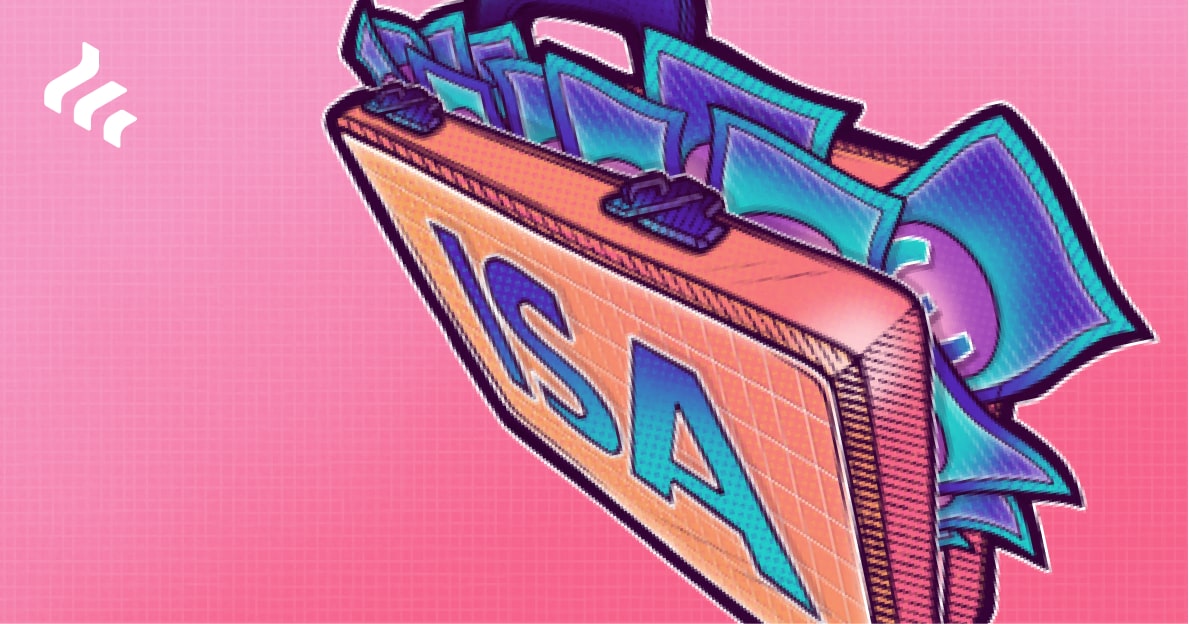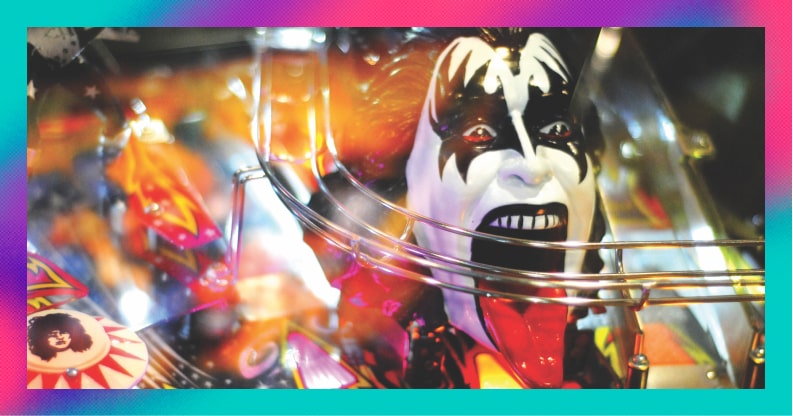Rules.
No one really likes them. But they’re often in our best interests.
No diving in the shallow end, no heavy petting and swimming trunks must be worn at all times are a few useful ones that spring to mind.
But rules can also help us get the most out of something.
Knowing upfront what you can and can’t do is useful, whether that’s in relation to your swimming trip or your stocks and shares ISA.
In this guide, we’ll cover the key stocks and shares ISA rules to help you to make the most of your tax-efficient investment account.
Before we start it’s important to know this article isn’t personal investment advice and that tax rules for ISA accounts can change and their benefits depend on your individual circumstances. It’s also important to understand that the value of your investments and any income you receive from them can rise and fall, and you may get back less than you invested.
Stocks and shares ISA recap
Not a rule but a quick recap to put the stocks and shares ISA dos and don’ts in context.
Individual savings accounts (ISAs) were introduced by the government to encourage us to save more in a tax-efficient way. A stocks and shares ISA is a type of ISA designed specifically for your investments.
Inside an ISA, you won’t pay income tax on any UK dividends or interest and you won’t need to worry about capital gains tax if you sell your investments for a profit.
ISA contribution rules
Who can open a stocks and shares ISA?
If you’re 18 or over and a UK resident for tax purposes then you can open a stocks and shares ISA. This also includes Crown servants (e.g. a diplomat or member of the civil service) working overseas.
How much can you put in an ISA?
This is dictated by the ISA allowance.
Each year HMRC sets an ISA allowance and it’s the total amount of money you can put into ISAs that tax year.
The ISA allowance for the 2024/25 tax year is £20,000.
You can invest all £20,000 in a stocks and shares ISA or spread it across different ISA accounts, such as a cash ISA or Lifetime ISA.
When is the ISA deadline?
The tax year runs from 6 April to 5 April the following year, so the current tax year 2024/2025 ends on 5 April 2025 at midnight.
This means you’ve got until then to open an ISA or top up your current ISA to make the most of the £20,000 allowance.
After the ISA deadline has passed we are into a new tax year and that means a new ISA allowance is in play. There’s no carrying over unused ISA allowances, so it really is ‘use it or lose it’.
How many ISAs can you have?
The ISA allowance can be split across different types of ISAs.
You can put a portion of your £20,000 allowance into a cash ISA, a portion into a Lifetime ISA (LISA), and the rest into a stocks and shares ISA.
Can I have two stocks and shares ISAs?
You can have as many stocks and shares ISAs as you like.
Previously, you could only contribute to one stocks and shares ISA at a time.
However, as of 6 April 2024, this rule was scrapped and you can now contribute to multiple cash ISAs and stocks and shares ISA each tax year.
Be wary of fees, though. Paying into multiple ISAs may cost you more in fees than if you had a single ISA.
People that have been on the ISA scene for a while may have old stocks and shares ISAs they’ve opened with other providers in previous tax years, so these are fine to hold on to.
It’s worth remembering that you can combine old ISAs by transferring them all to one provider.
Before transferring an ISA it’s important to understand whether you’ll be worse or better off by doing so. For example, check for any exit fees that your current provider might charge and that you can actually transfer.
Can I have two ISAs with different providers?
Yes, you can have ISAs with different providers.
For example, you could have a cash ISA with one provider and a stocks and shares ISA with another provider. Or as we mentioned above you could have a few old stocks and shares ISAs, which you’ve opened with different providers over the years.
What can you put in a stocks and shares ISA?
Stocks and shares ISAs are often called investment ISAs for the simple reason that it’s designed to make investing as tax-efficient as possible.
With a Freetrade ISA you’ll be able to invest in:
What you can actually hold in an ISA will vary a bit between ISA providers, so it’s best to check directly with the investment platform before opening an ISA.
Can I buy and sell shares within an ISA?
A stocks and shares ISA is just a tax-efficient share dealing account, so you can most definitely buy and sell shares within a stocks and shares ISA.
Don’t forget any profits you make when you sell an investment (i.e. capital gains) will be free from capital gains tax.
Do you have to invest straight away?
A stocks and shares ISA is designed to look after your investments but this doesn’t mean you have to invest your money straight away.
We don’t recommend staying in cash for too long, as you could miss out on investment opportunities and a chance to make your savings work harder (likely the reason you opened a stocks and shares ISA in the first place).
However, lots of people start by opening an ISA and topping it up with cash before investing.
This is a particularly common tactic towards the end of the tax year as people are keen not to lose out on that year’s ISA allowance. But it’s also an option if you’re not quite sure what to invest in yet.
These options are ok in the short term but keep in mind that a stocks and shares ISAs is designed to hold your investments and not your cash. Any cash in a stocks and shares ISA should be on its way to being invested.
ISA declaration rules
“I hereby declare this ISA open”.
That’s not quite what happens but it’s not far off. When you open a stocks and shares ISA or any type of ISA, you have to sign a declaration.
The declaration is required by HMRC and it confirms you’re eligible for the ISA in question. Your eligibility ties in with a lot of the stocks and shares ISA rules we’ve covered above.
For example, confirming you are over 18, a UK resident for tax purposes and that this is your first stocks and shares ISA this tax year. You’ll be asked to confirm it’s your own money you are subscribing to the ISA and that you won’t add more than the £20,000 ISA allowance annual contribution limit.
🤓 See the exact declaration under the eligibility section.
ISA transfer rules
There are lots of reasons why people choose to transfer their ISA.
It could be to do with investment choice, product, cost or even customer service.
Whatever your reason, it’s important to make sure an ISA transfer is right for you before making the move.
Can you transfer an ISA from a different provider?
You can transfer your ISA from one provider to another at any time.
If you want to transfer the money you’ve invested in the current tax year, you have to transfer your whole ISA. However, if it’s an ISA from previous years, you can choose to transfer all or just part of the ISA.
You can transfer your savings to the same type of ISA or a different one but the type of ISAs accepted will vary by investment platform.
Does transferring ISAs impact your ISA allowance?
ISA transfers do not count as new ISA subscriptions. This means if you are transferring ISAs from previous tax years, it will have no impact on your ISA allowance for the current tax year.
Can you transfer an ISA to another person?
You can’t transfer your ISA or any of your ISA investments directly to someone else, even if they're your civil partner or child. It’s called an individual savings account for a reason.
💸 What are Freetrade’s ISA transfer rules?
It’s simple and free to transfer your ISA to Freetrade.
You can transfer:
- A stocks and shares ISA
- A cash ISA
- An innovative finance ISA
You can’t transfer:
- A junior ISA
- A lifetime ISA
Stocks and shares ISA withdrawal rules
Stocks and shares ISAs let you take your money out when you need to. So while we’d encourage you make a portfolio with a long-term investment approach, you will be able to take your money out whenever you like.
It’s important to know how that affects your ability to contribute any more money to your ISA though.
Let’s say you’ve added £16,000 to your stocks and shares ISA this tax year and you withdraw £2,000. While the amount left in your ISA is now £14,000, the remaining amount you can put into your stocks and shares ISA this year is still £4,000. That’s because for most ISAs, once you’ve used your ISA allowance it’s gone.
What are flexible ISA rules?
What we’ve described above is true for Freetrade’s ISA and lots of other ISAs out there. But in your ISA explorations, you might also come across something known as a flexible ISA and the rules here are slightly different.
With a flexible ISA, you can take money out of your ISA and put it back in again without it affecting your annual ISA allowance.
Using the same example, having added £16,000 to your ISA and taken out £2,000 in the same tax year, with a flexible ISA, you’d still be able to add £6,000 to your ISA for the rest of the tax year.
Stocks and shares ISA tax rules
ISAs come with many tax benefits, that's why we’re superfans.
It’s also why you’ll see a few different names for ISAs. Tax wrapper and tax-efficient investment accounts are the main ones. (Catchy.)
With stocks and shares ISAs, any money you earn from your investments will be free from UK taxes.
That means:
- No capital gains tax if you sell your investments for a profit. But this swings the other way too, you can’t use any losses within an ISA to offset gains elsewhere.
- No income tax on dividends or interest
We also think it’s worth pointing out that an ISA doesn’t just protect you from taxes but also the hassle of filling out a self-assessment tax return.
Stocks and shares ISA taxes
There are a few taxes stocks and shares ISAs won’t protect you from.
1. Tax when you buy shares
When you buy most UK shares you pay a 0.5% tax, although this doesn’t include most AIM shares. This tax is paid and deducted at the time of the transaction.
If you buy the shares electronically you’ll pay Stamp Duty Reserve Tax (SDRT) but if you buy the shares using a stock transfer form you’ll pay Stamp Duty (for transactions over £1,000).
You don’t pay stamp duty on ETFs or other types of funds and you do not pay stamp duty on US stocks.
2. Withholding tax on US dividends
The US Government charges non-US residents a 30% tax on any income received from US investments. Thanks to an agreement between the UK and the US, UK residents can generally reduce this tax to 15%.
To do this you’ll need to fill in a W-8BEN form, which declares you’re not a US tax resident. If you’re a Freetrade customer we’ll prompt you to fill it in in-app.
What happens to your ISA when you die?
If you die, your ISA and its tax benefits will end. This doesn’t happen immediately but when your executor closes your ISA or the administration of your estate is completed. If neither happens your provider will close it three years and one day after your death.
With stocks and shares ISAs, your ISA provider can be instructed to sell the investments or transfer them to your surviving spouse or civil partner if they are with the same ISA provider as you.
There won’t be any income tax or capital gains tax to pay up to this date, but your ISA investments will form part of your estate for inheritance tax purposes. You can leave your ISA for anyone you wish to in your will. Your spouse or civil partner can also inherit your ISA’s tax-efficient status as a one-off boost to their own ISA allowance.
For example, if you have an ISA worth £40,000. When you die, your spouse or civil partner will get an additional one-off ISA allowance of £40,000 as well as the standard ISA allowance (which is £20,000 this year).

Get to grips with how to build your wealth using a stocks and shares ISA or a self-invested personal pension (SIPP). Our jargon-free guides are a great place to start learning how a stocks and shares ISA works and how to build a pension pot with a SIPP.
Important information
ISA eligibility rules apply. Tax treatment depends on personal circumstances and current rules may change.
A SIPP is a pension designed for you to save until your retirement and is for people who want to make their own investment decisions. You can normally only draw your pension from age 55 (57 from 2028), except in special circumstances.
At present, Freetrade only supports Uncrystallised Fund Pension Lump Sums (UFPLS) for customers who wish to withdraw funds from their SIPP after their 55th birthday. We strongly encourage you to seek financial advice before making any withdrawals from your SIPP.



